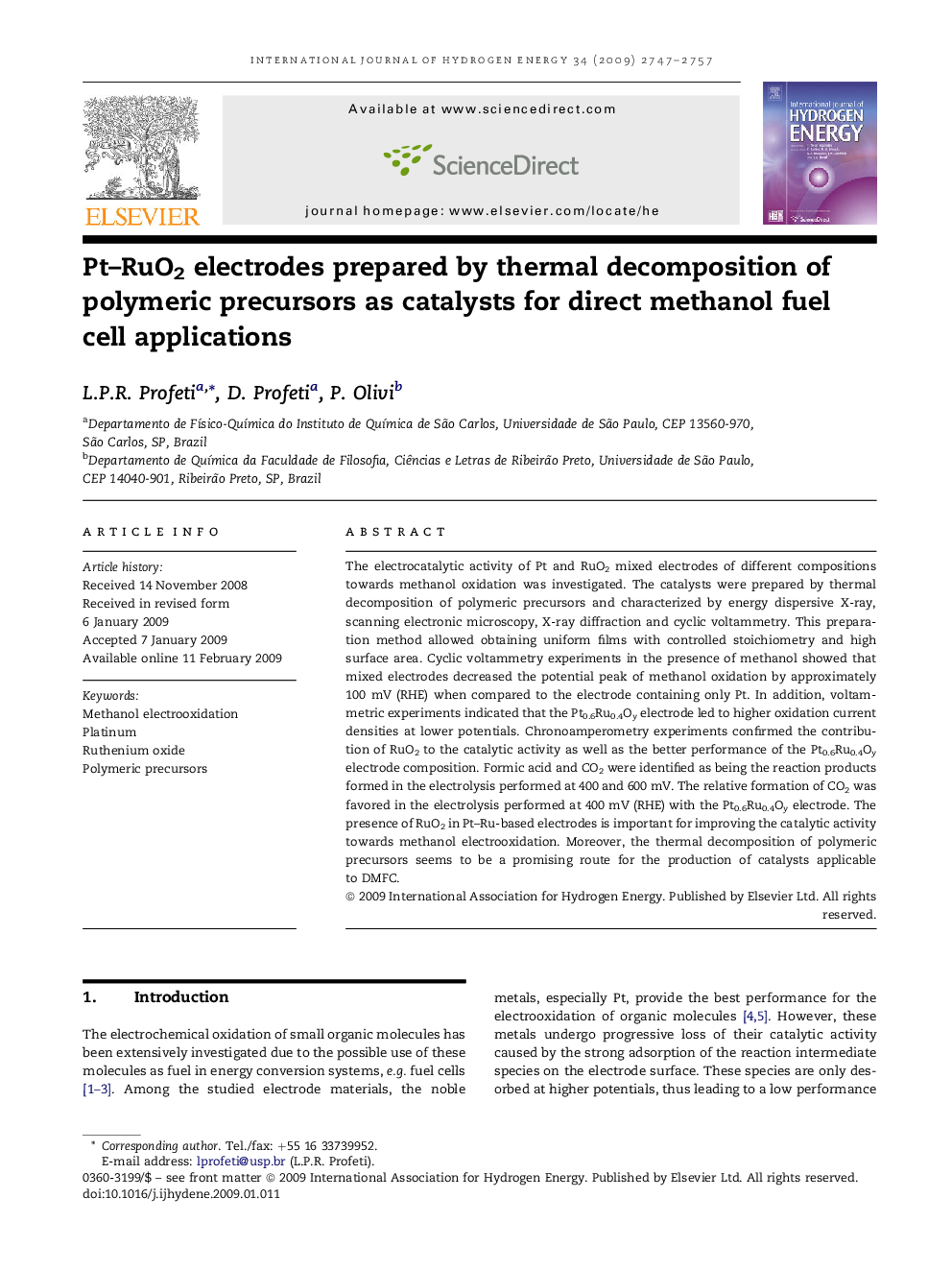| Article ID | Journal | Published Year | Pages | File Type |
|---|---|---|---|---|
| 1281209 | International Journal of Hydrogen Energy | 2009 | 11 Pages |
The electrocatalytic activity of Pt and RuO2 mixed electrodes of different compositions towards methanol oxidation was investigated. The catalysts were prepared by thermal decomposition of polymeric precursors and characterized by energy dispersive X-ray, scanning electronic microscopy, X-ray diffraction and cyclic voltammetry. This preparation method allowed obtaining uniform films with controlled stoichiometry and high surface area. Cyclic voltammetry experiments in the presence of methanol showed that mixed electrodes decreased the potential peak of methanol oxidation by approximately 100 mV (RHE) when compared to the electrode containing only Pt. In addition, voltammetric experiments indicated that the Pt0.6Ru0.4Oy electrode led to higher oxidation current densities at lower potentials. Chronoamperometry experiments confirmed the contribution of RuO2 to the catalytic activity as well as the better performance of the Pt0.6Ru0.4Oy electrode composition. Formic acid and CO2 were identified as being the reaction products formed in the electrolysis performed at 400 and 600 mV. The relative formation of CO2 was favored in the electrolysis performed at 400 mV (RHE) with the Pt0.6Ru0.4Oy electrode. The presence of RuO2 in Pt–Ru-based electrodes is important for improving the catalytic activity towards methanol electrooxidation. Moreover, the thermal decomposition of polymeric precursors seems to be a promising route for the production of catalysts applicable to DMFC.
